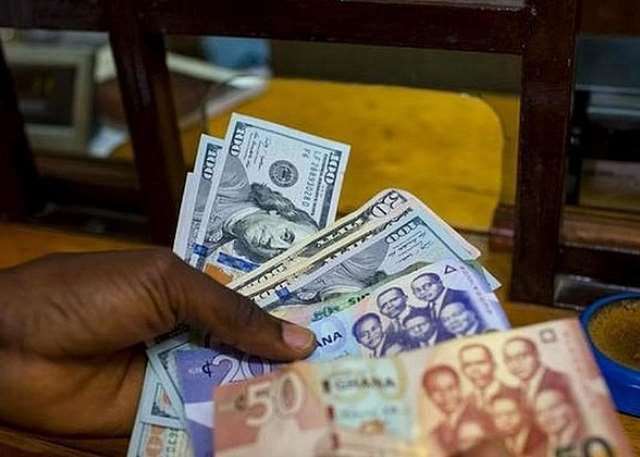The Government of Ghana is set to begin settling outstanding debts owed to road contractors before the end of July, a move that, while critical to reviving stalled infrastructure projects, could also place renewed pressure on the local currency.
According to a JoyNews report, President John Mahama disclosed during a meeting with the Council of State at the Presidency on Monday, July 7, that the government will begin clearing debts owed to road contractors within this month.
The planned payments, estimated in billions of cedis, aim to restart delayed road and transport projects across the country as part of what officials describe as a reset of Ghana’s infrastructure development agenda.
Concerns exist that injecting a large volume of cedis into the economy without corresponding foreign exchange inflows could fuel demand for dollars, potentially weakening the cedi and reversing recent gains in currency stability. However the recent World Bank support and the International Monetary Fund disbursement totaling some $727 million could provide some cushioning. But market watchers caution that care must be taken not to erode the gains the currency has made in recent months.
Earlier this year, the Minister of Roads and Highways, Governs Kwame Agbodza, disclosed that nearly all road projects nationwide had stalled due to debt. He attributed the situation to what he called “unsustainable levels” of awarding contracts without matching funds. In a disclosure to Parliament, the Minister noted that certified road project arrears stood at approximately GHS 21.2 billion, representing completed works awaiting payment.
In addition, the Ghana Chamber of Construction has indicated that the sector is carrying over GHS 105 billion in outstanding commitments, contracts that have been awarded but remain unexecuted or incomplete. While not yet due for payment, these liabilities are legally binding and could pose long-term fiscal risks if not reviewed and reprioritized.
The cedi has seen relative stability in recent months, supported by higher gold export earnings, improved regulatory oversight of the gold trade, and tight monetary policy. President Mahama also pointed to better-than-expected foreign exchange inflows, boosted in part by reforms such as the establishment of the Gold Board.
Speaking at the Council of State meeting, the President acknowledged the pace and pressure of economic governance, noting that although his administration had only been in office for six months, the tempo of activity had felt far more intense.
“It’s exactly six months since we were sworn into office. It looks like we’ve been in office for almost two years already, because of how quickly things have been moving,” he remarked.
He added that the upcoming mid-year budget review would offer a more complete picture of the administration’s performance so far, especially regarding fiscal and economic indicators.
“The Minister of Finance will be going to Parliament with the mid-year review of the budget… so we’ll have a better view of what we’ve been doing over the last six months. I’m sure that after that we can hold one of our statutory meetings to discuss how far we’ve come.”
Mahama also emphasized the role of gold trade reforms in stabilizing the local currency. According to him, returns on gold exports have “more than doubled” in recent months, contributing significantly to foreign exchange inflows and supporting the Bank of Ghana’s reserves.
“We currently have about six months of import cover,” he noted, pointing to the broader impact of the new Gold Board and enforcement against unauthorized gold exports.
Still, with the impending release of arrears to contractors, the currency could face renewed pressure, particularly if disbursements trigger a sharp increase in dollar demand.
The mid-year budget review is expected to shed light on how the government intends to balance infrastructure spending with exchange rate stability.
-thehighstreetjournal


